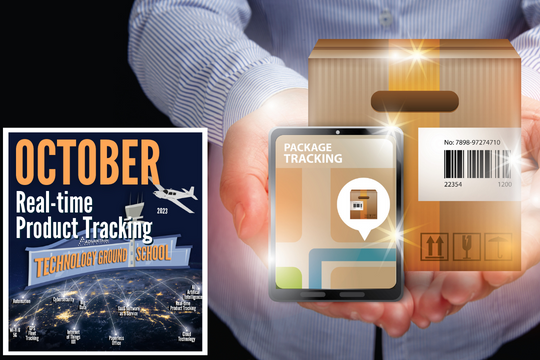
Are you a customer? Access your all-new portal by clicking here to login.

OCTOBER – Real-time Location Tracking of Products
Raise your hand if you’ve ever found yourself repeatedly checking the tracking of an item you’ve ordered. You follow its journey from city to city and maybe even stop to stop, right? I know I have. This process of tracking items from manufacturer to consumer is what we’ll be exploring in October’s Ground School topic- Location-Based Technology. This term encompasses various technologies used to determine the location of objects or people, and it has gained significant importance in recent years, largely due to the widespread availability of GPS-enabled devices like smartphones.
This tracking is accomplished through tools such as geolocators, GPS, various communication technologies, specialized software, and geospatial trackers. These tools precisely pinpoint a product’s physical and geographical location, providing information about its status and even temperature as it traverses the supply chain. This capability helps identify potential bottlenecks or inefficiencies in the process and enables companies to optimize their supply chains for better performance. Moreover, location-based technology can continue tracking the product’s movements once it reaches the consumer, which is particularly valuable for high-value items where theft or loss is a concern. Retailers can ensure these products are stored and transported securely and promptly address any issues that arise.
Additional benefits of real-time product location tracking include:
However, real-time product tracking also comes with certain risks, such as:
As with any technology, it’s essential to weigh the pros and cons and consider the financial impact before deciding to invest in it. Location-based technologies are potent tools for both manufacturers and retailers, enabling them to enhance efficiency and elevate the customer experience.

Copyright © 2025 – All Rights Reserved – CLICK HERE to review our company privacy policy.